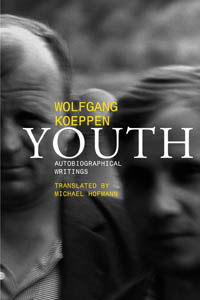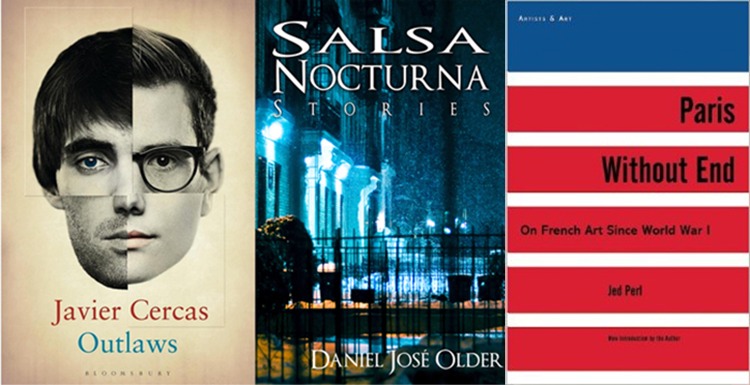 The strength of Wolfgang Koeppen’s Youth (Jugend), an autobiographical account of the German author’s formation, lies in the small stuff: its sentence constructions, its often-startling words. These sentences can go on endlessly, such as the evocation of its setting that starts the book. After a first, short sentence—“My mother was afraid of snakes”—Koeppen goes on to describe the area of Rosental in one elaborate sentence that continues for the next three pages. This sentence twists and grows, covering furniture, landmarks, food, even the history of the young narrator’s family, until the speaker plunges into a fantastic rant against the place:
The strength of Wolfgang Koeppen’s Youth (Jugend), an autobiographical account of the German author’s formation, lies in the small stuff: its sentence constructions, its often-startling words. These sentences can go on endlessly, such as the evocation of its setting that starts the book. After a first, short sentence—“My mother was afraid of snakes”—Koeppen goes on to describe the area of Rosental in one elaborate sentence that continues for the next three pages. This sentence twists and grows, covering furniture, landmarks, food, even the history of the young narrator’s family, until the speaker plunges into a fantastic rant against the place:
[…] while all around the streets smelled complacently of the anatomy of clinics, the sweat of patients, the horror of the dying, the fear of the examinee and the guilty innocents at the mercy of the prison-warders […] of the vanity of professors, the dead hearts of officials, the frowst of the laws, and then the poverty of the Lange Reihe and the indurated humiliation of the gray school, how I hated the city and wished it consigned to the snakes (5).


